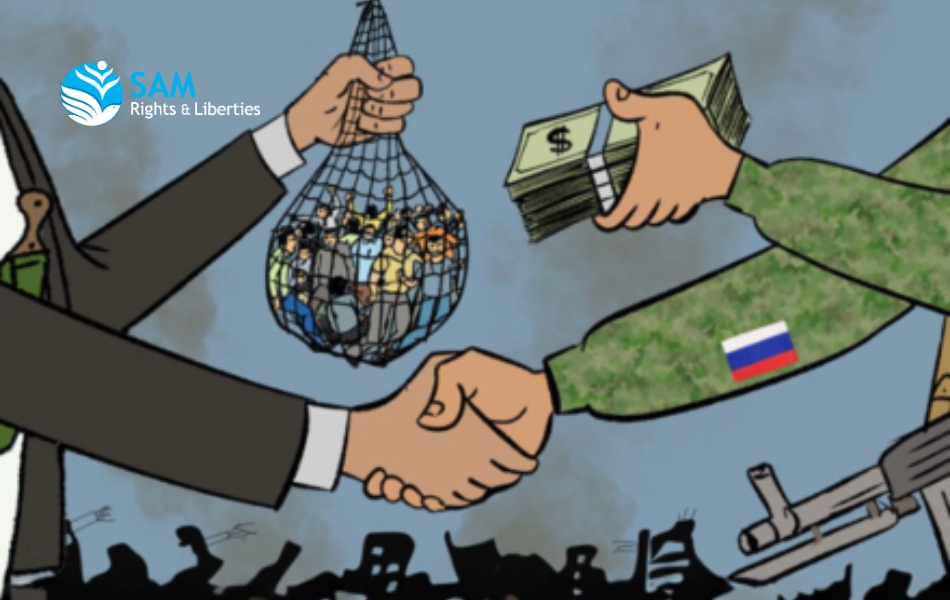
Geneva – On Monday, December 30, SAM Organization for Rights and Liberties released a comprehensive human rights report documenting the exploitation of Yemeni youth for recruitment into the Russian-Ukrainian war. This recruitment is carried out through coercive networks that exploit the dire humanitarian conditions in Yemen caused by years of ongoing conflict.
The report sheds light on a complex network of forced recruitment, in which local groups collaborate with international intermediaries to enlist Yemeni youth under false promises of lucrative jobs and salaries, sometimes reaching up to $10,000 USD. It emphasizes that the lack of oversight and weak legal awareness make Yemeni youth easy prey for exploitation in military conflicts.
Titled “Death Trade": How Yemenis Were Exploited to Fight in Ukraine,” the report provides detailed accounts of severe violations faced by the recruits after arriving in Russia. Recruits are forced to fight under harsh and inhumane conditions, deprived of food and medical care, and subjected to injuries and death due to indiscriminate shelling on the battlefield. This underscores how these networks exploit the vulnerable humanitarian situation of the recruits.
SAM report highlights that the dire economic conditions in Yemen, including widespread unemployment and poverty, make the youth an easy target for exploitation. Moreover, the lack of awareness regarding international and domestic laws further exacerbates their vulnerability to coercive networks, leaving them more exposed to violations within the context of military conflict.
The report also reveals a connection between the Houthis and Russia in this context, pointing to coordination between these networks to achieve political and military objectives. This coordination expands Russia’s influence in Yemen, using recruitment networks to bolster its presence in the conflict—a clear reflection of how regional and international conflicts intertwine with the suffering of Yemeni citizens.
The findings of the report indicate that these forced recruitment networks are not limited to local agents but also involve individuals linked to political groups within Yemen, such as Abdulwali Al-Jabari, a prominent figure in these networks. Recruits are lured with promises of migration and employment, only to be funneled through illegal channels to Russia, where they are held in forced military training camps. Often, recruits are not fully aware of the legal or humanitarian consequences of signing untranslated contracts.
The report emphasizes that the exploitation of Yemeni youth in the Russian-Ukrainian war is not merely a human rights violation but also part of a broader crisis where international and regional interests intersect with the humanitarian tragedy. It calls for urgent legal measures to protect returning recruits and prevent the recurrence of such violations.
SAM Organization's report provides several recommendations to the Yemeni government, urging it to take decisive steps to prosecute and punish those involved in forced recruitment operations. These steps include strengthening national laws to protect youth from exploitation, raising community awareness about the dangers of forced recruitment, and providing necessary support to returning recruits.
The report also calls on the international community to intensify oversight of the channels through which Yemenis are recruited, such as Oman and Russia, and to launch international investigations into these violations. It urges pressure on the United Nations and relevant human rights bodies to investigate the recruitment of mercenaries.